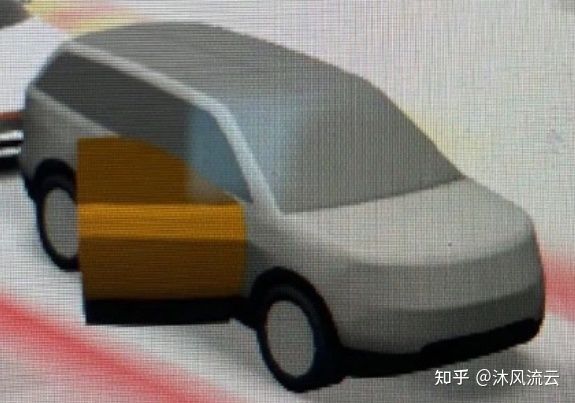Tesla FSD 自动驾驶软件升级版本说明书解析二(Beta v10.12 Release Notes)_tesla fsd 可视化
赞
踩
Tesla FSD软件的版本说明书写得十分技术流,里面会详细列举新增了什么feature、修复了什么bug、采用了什么方法(算法还是数据等)提升了多少指标之类的信息,有助于从业人员了解Tesla的底层算法技术和功能设计逻辑,值得阅读研究。
Telsa FSD于2022年5月15日正式发布了Beta v10.12版本(目前仅面向Tesla员工发布。Available only in Canada, USA),适用于Model S/Model 3/Model X/Model Y。此次属于大版本更新,所以Release notes一共列写了18条,让我们逐条解析看看:
1. Upgraded decision making framework for unprotected left turns with better modeling of objects' response to ego's actions by adding more features that shape the go/no-go decision. This increases robustness to noisy measurements while being more sticky to decisions within a safety margin. The framework also leverages median safe regions when necessary to maneuver across large turns and accelerating harder through maneuvers when required to safely exit the intersection.
升级了“无保护左转”场景的决策框架,通过增加更多的特征刻画go/no-go决策来更好地建模他车对自车决策行为的反应。这样增加了噪声测量场景下的决策鲁棒性,同时更易保证决策结果在安全边界内。这个框架还能够利用路口中间安全区域进行大幅度左转机动,也能够在需要安全驶出交叉路口时快速加速机动。
2. Improved creeping for visibility using more accurate lane geometry and higher resolution occlusion detection.
更精确的车道几何结构和更高分辨率的遮挡检测信息,提升了怠速模式下的可见性(这条不是很好理解)
3. Reduced instances of attempting uncomfortable turns through better integration with object future predictions during lane selection.
在规划车道选择时更好地融合了目标未来的轨迹预测信息,从而降低不舒适转弯行为的规划概率
4. Upgraded planner to rely less on lanes to enable maneuvering smoothly out of restricted space.
升级了路径规划器,降低了对车道信息的依赖以增强受限区域外的行驶鲁棒性
5. Increased safety of turns with crossing traffic by improving the architecture of the lanes neural network which greatly boosted recall and geometric accuracy of crossing lanes.
道路结构认知网络结构的优化极大地提升了交叉车道的召回和几何精度,增强了交叉路口转弯的安全性
6. Improved the recall and geometric accuracy of all lane predictions by adding 180k video clips to the training set.
训练数据中增加180k视频片段,提升了车道线召回和几何精度
7. Reduced traffic control related false slowdowns through better integration with lane structure and improved behavior with respect to yellow lights.
通过更好地融合车道结构和对黄色信号灯的识别信息,降低了因交通信号灯造成的误刹车
8. Improved the geometric accuracy of road edge and line predictions by adding a mixing/coupling layer with the generalized static obstacle network.
通过增加一个与通用障碍物检测网络(或分支)融合/交互的层(不清楚是什么层级的融合),提升了道路边缘和车道线几何形状的预测精度
9. Improved geometric accuracy and understanding of visibility by retraining the generalized static obstacle network with improved data from the autolabeler and by adding 30k more videos clips.
通过增加30k+视频片段和自动化标注系统提升数据质量,提升了通用静态障碍物网络预测的几何形状精度和召回
10. Improved recall of motorcycles, reduced velocity error of close-by pedestrians and bicyclists, and reduced heading error of pedestrians by adding new sim and autolabeled data to the training set.
通过增加新的虚拟仿真数据以及自动化标注的真实数据,提升了摩托车的召回,降低了近处行人和骑行人的速度预测误差、行人朝向角预测误差
11. Improved precision of the "is parked" attribute on vehicles by adding 41k clips to the training set. Solved 48% of failure cases captured by our telemetry of 10.11.
添加41k视频片段到训练数据中,提升了车辆是否处于停泊状态(动静判断)的识别精度。能够解决v10.11版本运行时收集到的此类案例中的48%
12. Improved detection recall of far-away crossing objects by regenerating the dataset with improved versions of the neural networks used in the autolabeler which increased data quality.
提升了远处横穿目标的检测召回,通过优化的预训练模型集成到自动化标注系统中改善了此类数据标注的质量
13. Improved offsetting behavior when maneuvering around cars with open doors.
改善了经过开着车门的他车车辆过程中的运动控制
14. Improved angular velocity and lane-centric velocity for non-VRU objects by upgrading it into network predicted tasks.
通过神经网络化,提升了非VRU类目标的角速度和以车道为中心的速度预测精度
15. Improved comfort when lane changing behind vehicles with harsh deceleration by tighter integration between lead vehicles future motion estimates and planned lane change profile.
通过联合进行前车未来轨迹预测任务和自车变道决策规划任务,提升了在前车突然减速场景下自车变道过程的舒适性
16. Increased reliability on network-predicted acceleration for all moving objects, previously only longitudinally relevant objects.
提升了对所有动态目标加速度预测的可靠性(基于神经网络),先前只纵向目标有效
17. Updated nearby vehicle assets with visualization indicating when a vehicle has a door open.
UI系统中新增了近处他车打开车门细节的可视化(还增加了车轮)

v10.12版本UI

v9版本UI
18. Improved system frame rate +1.8 frames per second by removing three legacy neural networks.
去除3个旧的神经网络模型,系统每秒帧率提升了1.8!
综上所述我们可以看到此次升级涉及到的模块归纳如下:
道路结构认知:6、8
感知(perception):9(通用障碍物)、10(检测、速度、朝向角)、11(动静判断)、12(远处横穿目标)、14(角速度、以车道为中心的速度)、16(加速度)
预测(prediction):3
规控:1、3、4、5、7、13、15
其他:2、17、18
提及“仿真”:10
提及“自动化标注”:9、10、12


